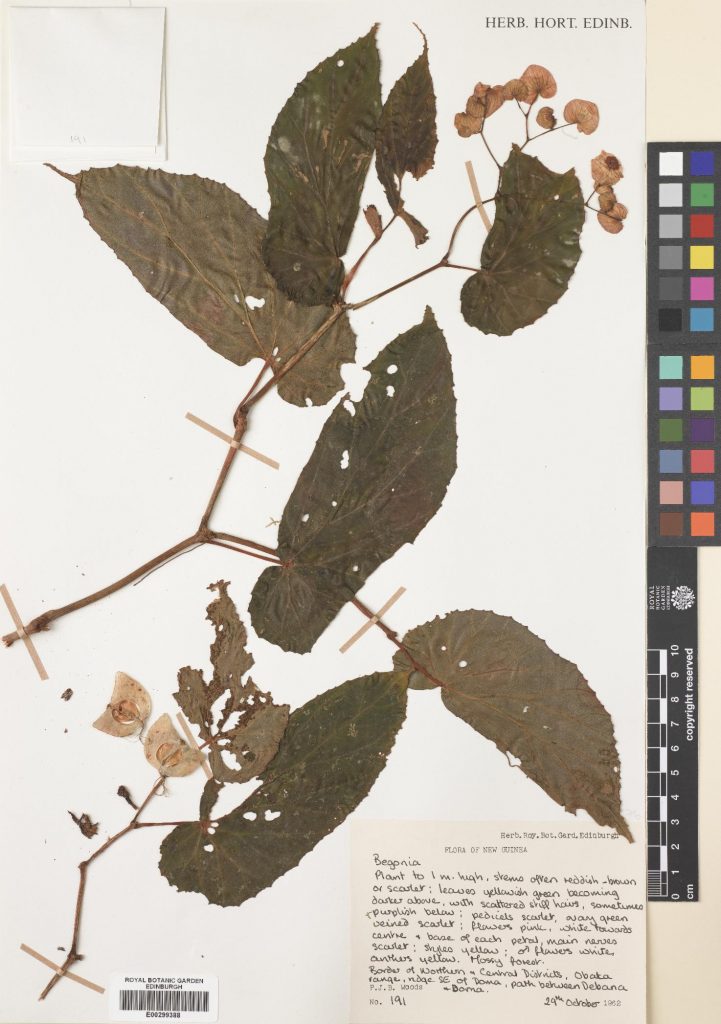The megadiverse genus Begonia L. is one of the world’s largest plant genera, comprising over 1,800 species, an estimated 200 of which are endemic to New Guinea. A tropical wildernesses, the biodiversity of the island is still relatively unexplored and poorly understood.
As part of her PhD project, Hannah Wilson is reconstructing the evolution of New Guinea Begonia by using hybrid bait capture on DNA from herbarium specimens. The phylogeny she produces will be used for biogeographic, systematic and functional phylogenomic research.
Historically, sampling for phylogenetic studies has been limited by the availability of good quality, recently collected field samples. Recent advances in bait capture and next-generation sequencing allow us to utilize the DNA in herbarium material instead (Hart et al., 2016, Taxon). As we can capitalise on the hundreds of years of collecting effort that is currently stored in our herbaria, Hannah can potentially sample most of the known Begonia species from New Guinea without leaving Edinburgh.
A Begonia hybrid bait set containing 1,204 gene sequences that are expected to be of functional interest is already available. It was designed by Dr Kuo-Fang Chang and Dr Yu-Hsin Chen, from the Academia Sinica, Taiwan.
Taking advantage of Hannah’s phylogenetic work on one of our core plant groups, Begonia, we are also continuing to explore another of RBGE’s core research interests, “muSeq“. We will be working with DNA from herbarium specimens and examining the impact of the different ways that specimens are preserved, by plant collectors in the field, on DNA quality. This project will be a collaboration between Hannah, Drs Catherine Kidner and Mark Hughes from our Tropical section, Dr Michelle Hart and myself from Scientific and Technical Services and Drs Kuo-Fang Chang and Yu-Hsin Chen from the Academia Sinica, Taiwan.

